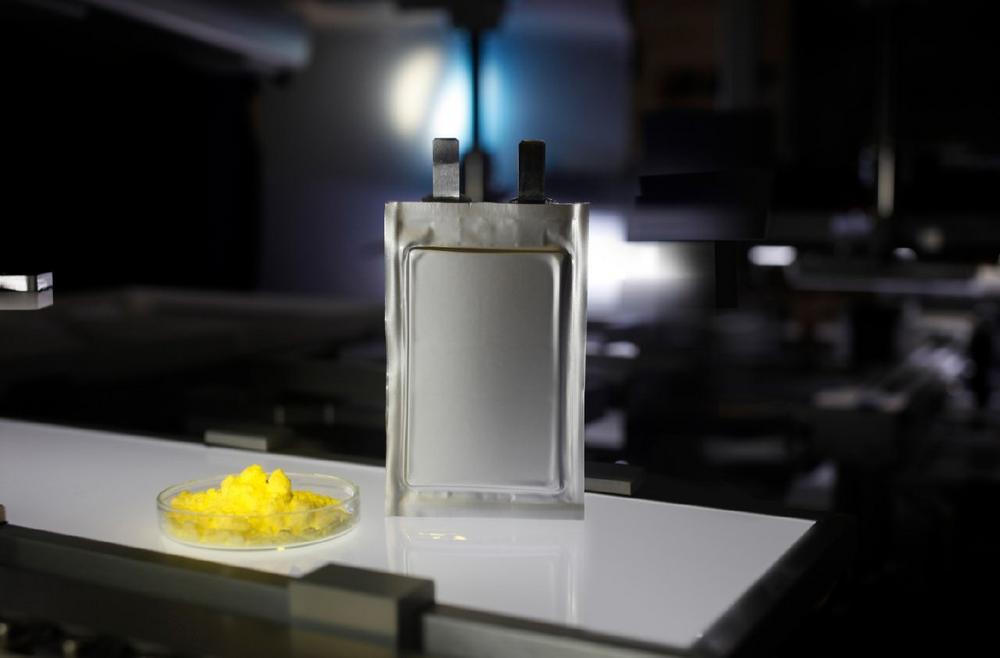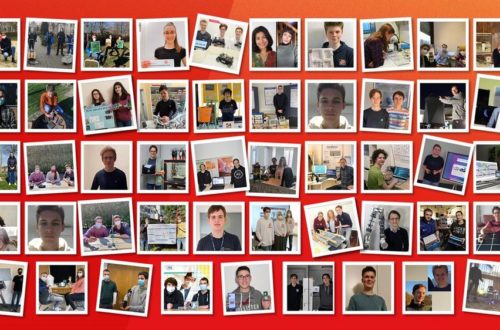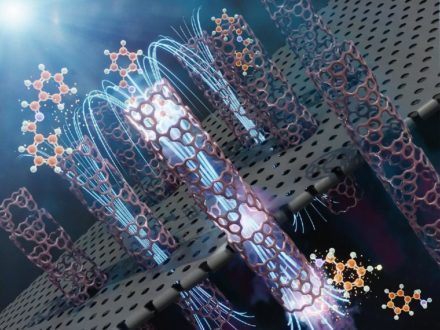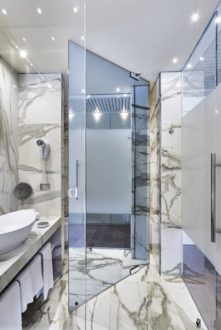
Solid-state battery to leap into industrial application
Solid electrolytes are currently the focus of battery research and are considered as a safer alternative to the conventional, highly flammable liquid electrolytes in lithium batteries. In the so-called solid-state battery, these inorganic solids transport lithium ions between the positive and negative electrodes. In combination with new storage materials, they are accordingly the key to safe battery cells with high energy density. After all, liquid electrolytes lead to undesirable side reactions in lithium-sulfur batteries, which have so far resulted in a short cell life. Therefore, the use of solid electrolytes represents a promising solution approach. Current research results are encouraging: the basic feasibility of a Li-S solid-state battery has already been demonstrated on a laboratory scale. However, there is too little data on application-relevant prototype cells, making it impossible to evaluate the technology as of yet.
Aim: Application-oriented proof
The SoLiS project partners consequently pursue the aim of developing battery cells with multiple electrode layers based on Li-S solid-state technology and evaluating them in an application-oriented manner. In addition to the processing and manufacturing methods, they also target the holistic investigation and optimization of the electrodes‘ nano- and microstructure. The challenge is to place the storage material sulfur in close contact with electrically conductive carbon and the ion-conducting solid electrolytes. One of the core requirements in the production of the first prototype cells is to manufacture the cell components involved in sufficient quality and quantity. Consequently, the SoLiS project relies on an interdisciplinary team with expertise in the development of innovative materials and processes as well as in electrochemical and structural characterization:
- Fraunhofer IWS takes over the project coordination and contributes know-how on innovative processes for the fabrication of electrodes and prototype cells to the project
- Technische Universität Dresden works on the cathode composite materials and a suitable electrode design
- Scientists at Westfälische Wilhelms-Universität Münster investigate tailor-made solid electrolytes and their transport properties for the new battery type
- Justus Liebig University Gießen contributes its experience and expertise in characterizing interfacial phenomena in solid-state batteries and evaluates possible advantages of additives
- Schunk Kohlenstofftechnik GmbH takes over the production of carbon additives or industrially relevant composite materials
The Fraunhofer Institute for Material and Beam Technology IWS Dresden develops complex system solutions in materials and laser technology. We define ourselves as idea drivers developing customized solutions based on laser applications, functionalized surfaces as well as material and process innovations – from easy-to-integrate custom solutions to cost-efficient solutions for small and medium-sized enterprises to industry-ready one-stop solutions. Our research focuses on aerospace, energy and environmental technology, automotive, medical and mechanical engineering, toolmaking, electrical engineering and microelectronics, and photonics and optics sectors. In our five future and innovation fields of battery technology, hydrogen technology, surface functionalization, photonic production systems and additive manufacturing, we are already creating the basis today for the technological answers of tomorrow.
Fraunhofer-Institut für Werkstoff- und Strahltechnik IWS
Winterbergstraße 28
01277 Dresden
Telefon: +49 (351) 83391-0
Telefax: +49 (351) 83391-3300
http://www.iws.fraunhofer.de
Leiter Unternehmenskommunikation
Telefon: +49 (351) 83391-3614
Fax: +49 (351) 83391-3300
E-Mail: markus.forytta@iws.fraunhofer.de
![]()



